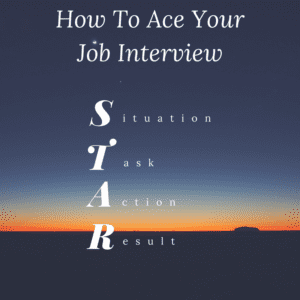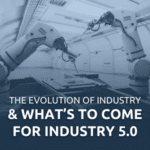Ace Your Job Interview
Your primary goal in an automation job interview is to get an offer, while the automation company’s primary goal is to determine if you are the best candidate for the job. It can be stressful to enter an interview not knowing what questions will be asked. A simple way to ace your job interview every time is by maintaining your confidence and by drawing a relationship between your unique experiences to match the job you are interviewing for. When asked about your past engineering experiences or skill set, remember to answer by using the STAR Formula.

What is the STAR Formula?
The acronym stands for: Situation; Task; Action; Result.
Each answer should tell a story that demonstrates your skills/abilities/experience within the automation field. First you briefly describe the situation. What was the issue/problem? What engineering equipment was involved? Who else was involved? Then, explain what your task was. Did you need to fix a machine, sell your automation services, or ease tension between two coworkers? Next, address what action you took to complete the task. What automation skills did you use? How did you work together with others? Finally, describe the result. Did you replace critical components? Did you make the sale? Was the issue resolved?
Let’s look at an example of the STAR Formula.
Suppose the interviewer asks you if you have experience with Allen-Bradley PLCs.
Rather than saying, “Yes, I used Allen-Bradley a lot in my last job”, try something like this:
Situation: In my previous job, one of my big projects was upgrading our client’s factory to Allen-Bradley PLCs.
Task: I was the Lead Controls Engineer in charge of programming the new ControlLogix PLCs. We had a tight six month deadline to get the factory converted.
Action: I worked closely with the Plant Engineer to write all new code for the machines. I relied on my extensive background in PLC programming to write the code while the Plant Engineer dictated the functional requirements.
Result: We had the plant up and running with the new PLCs five days before the deadline.
You can see that this method gives the interviewer a clearer picture of what you’ve done. Your answers do not need to be long; you can say a lot in a few sentences.
Let’s try another example. The interviewer asks, “Tell me about your management experience.” Rather than saying, “I have five direct reports in my current job,” try this:
Situation: In my current position, I have five direct reports, all of whom are on the sales team. Company sales have been down, so each sales person has new sales quotas.
Task: In addition to my sales responsibilities, I am accountable for my reports meeting their sales quotas. More specifically, I needed to help two of my team members increase their sales by 20% in 2014.
Action: I set up weekly team meetings for my group so we could brainstorm ways to improve and share success stories. I also met individually with my team members to break their annual goals down into measurable monthly and weekly targets. We identified potential new clients to go after and existing clients who may increase their spending.
Result: Each member of my team met their $3.2 Million sales goal for 2014. My two weakest performers in 2013 increased their sales by 22% and 26% in 2014.
Now the interviewer knows that you get results and has an idea of how you act as a manager.
Before your interview, carefully read the job description and think about what questions the interviewer may ask. Come up with examples from your automation work experience and form answers using the STAR Formula. Your answers should be specific yet succinct and measurable (when possible). Practice saying the answers out loud before the interview so you become more comfortable giving answers in this format. The interviewer probably won’t ask the exact questions you anticipated, but if you’ve gone through this exercise, you’ll be able to quickly think of examples and formulate strong answers.
Not every interview is going to go in your favor. Sometimes there will be questions that catch you off guard and might end poorly. Remember that it doesn’t necessarily need to be a positive outcome as long as you learned from the experience and what you would do differently next time. Showing growth in defeat can be just as important as showing success.
Get comfortable using the STAR Formula to answer interview questions and you’ll have an engineering job offer in hand in no time!
About the Author:
This article is written by Kelly Laurel, Former Operations Manager at Automationtechies.
Catch her on LinkedIn.




